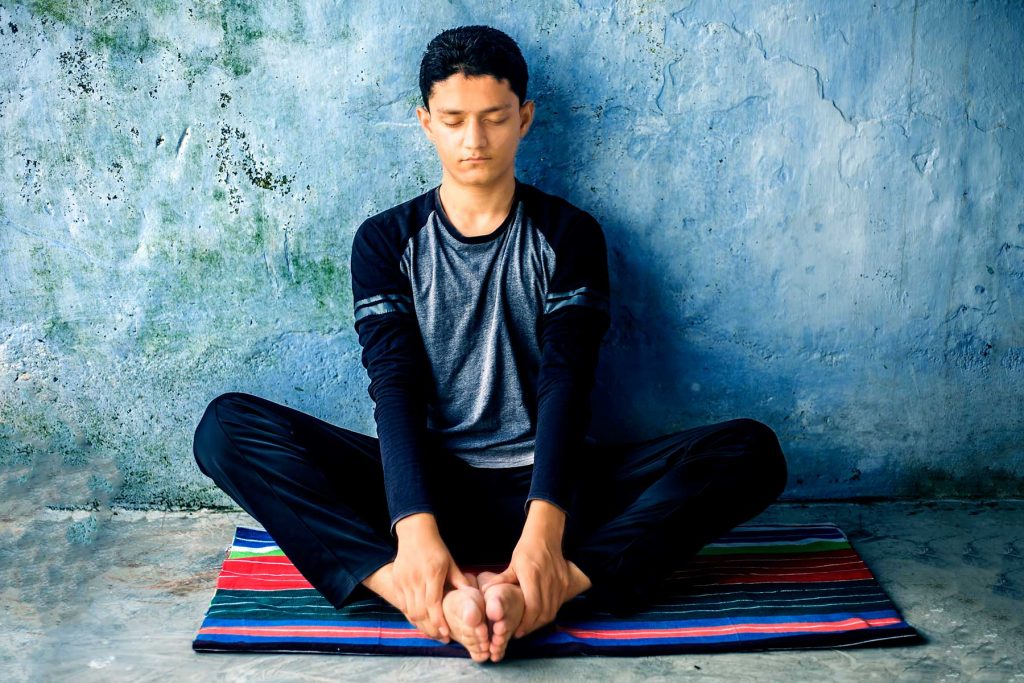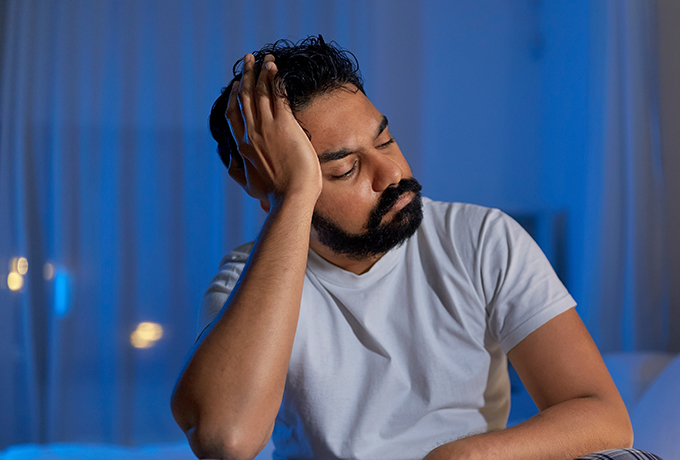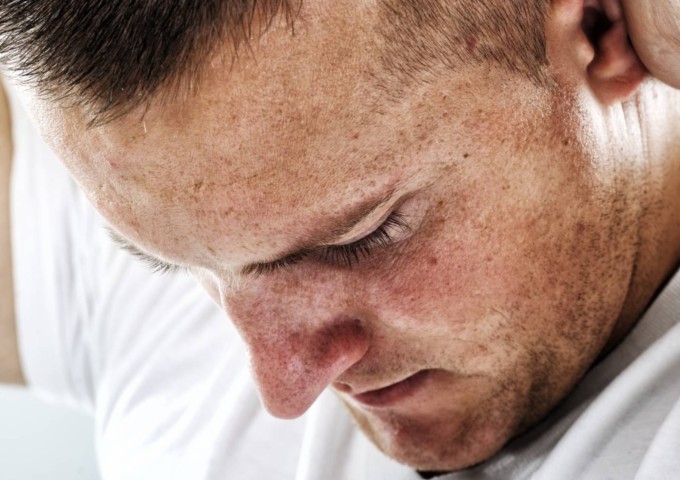What are some simple relaxation techniques?
There are many calming techniques you can incorporate into your day-to-day life to help achieve this relaxation response. It might be a little hard at first, but if you practise regularly, it will become easier.
Body scan
This calming technique may be helpful to release tension. Please note that it may not be effective if you’ve had recent surgery or if you have intense pain in certain areas of your body – see your GP for advice.
Follow the steps below:
- Get comfortable in a seated or lying position.
- Close your eyes and take a few deep breaths. Notice how your breath feels as it enters your nose.
- Choose which part of the body you want to start your scan from or start at the top of the head. Focus on that area of the body. Notice the sensations – can you feel the chair or floor, is it cold or warm, is there any tension or discomfort?
- Try to accept any tension or discomfort without judgement. Focus your attention on that area of the body and breathe slowly. With each breath, try to imagine the tension or discomfort decreasing.
- When you’re ready, move your focus to the next part of your body and repeat steps 3 to 5.
- Throughout the process, you may find your mind has wandered. That’s completely normal. Gently guide your mind back to your scan.
- When you have finished scanning each part of your body, continue to breathe deeply for a few minutes as you notice how your body feels.
- Bring your attention back to your surroundings to end the body scan.
Progressive muscle relaxation
This calming technique is like the body scan however, instead of just being aware of the body parts, you tense, then relax each muscle group.
Start similarly to the body scan – find a quiet place and get comfortable in a seated or lying position. Close your eyes and take a few deep breaths. When you get to each muscle group, tense the muscles for a few seconds, then relax. Repeat this a few times to help your muscles relax deeper each time.
Please note, if you have any injuries or pain problems, consult your doctor before trying this exercise.
Some ideas you can do for the different muscle groups are:
- Face – squeeze your eyes shut and then release.
- Face — scrunch your eyebrows or wrinkle your forehead, then
- Face – smile as wide as you can, then relax.
- Shoulders — shrug by moving your shoulders upwards, then relax.
- Chest — breathe in deeply, then breathe slowly out.
- Arms — stretch your arms in the air and reach, then relax.
- Hands — make a fist with your hand, then relax.
- Hands —stretch out your hand, then relax.
- Feet — point your toes, then relax.
When should you do relaxation exercises?
Try to practise your relaxation exercises every day, so it becomes a habit. The more you practise, the easier it will be to achieve relaxation and lower your stress.
It might also be helpful to do relaxation exercises when you’re in a moment of stress or when you’re finding it difficult to sleep.
Get some help
If you’re still feeling stressed after regularly doing relaxation exercises, don’t be afraid to ask for help. Sometimes talking to your GP or a health professional will give you more ideas about how to reduce stress in your life.
MensLine Australia has professional counsellors available 24 hours a day, seven days a week to help you with your stresses and concerns.
Call us on 1300 78 99 78 or access online counselling.
References
[1] https://www.health.harvard.edu/mind-and-mood/six-relaxation-techniques-to-reduce-stress
[2] https://www.apa.org/monitor/2008/10/relaxation










